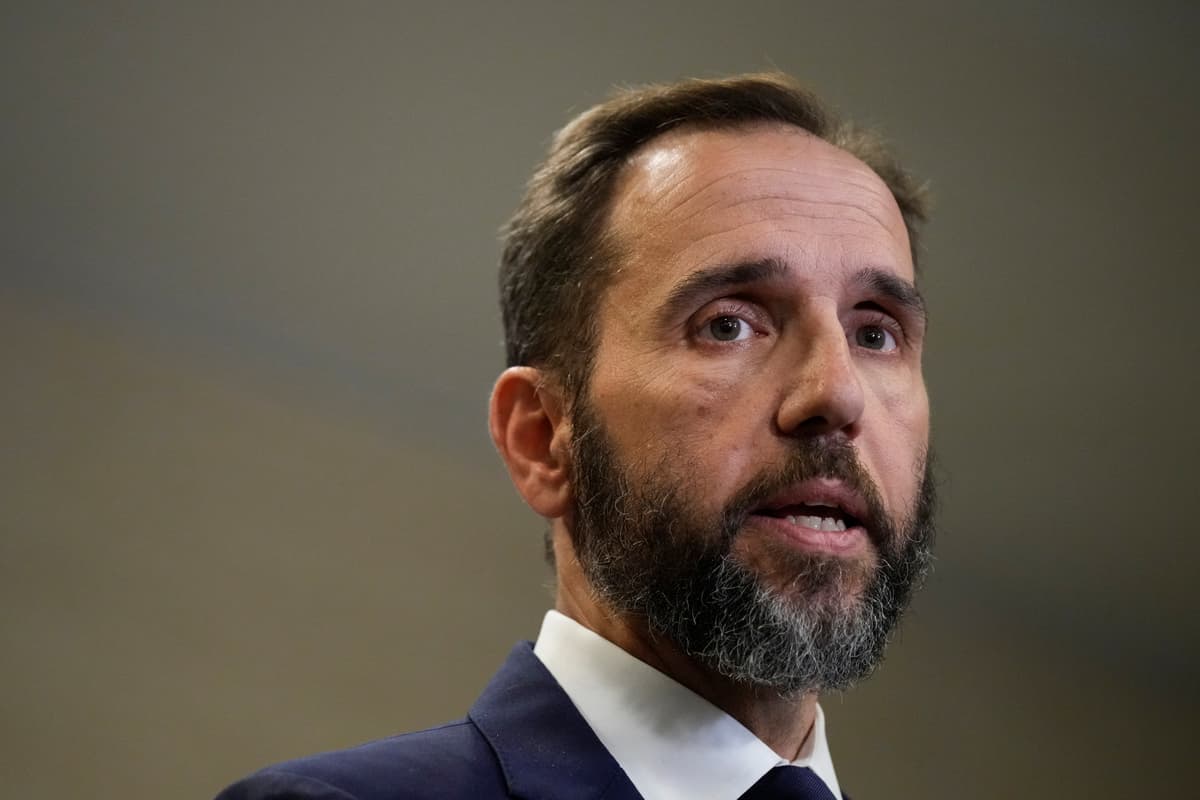Jack Smith’s Staff Was ‘Alarmed’ at His ‘Insane’ Blunder of Bringing His Trump Mar-a-Lago Charges in a Florida Court
A new book details how one of the special counsel’s deputies called Judge Aileen Cannon an ‘existential threat.’

Special Counsel Jack Smith’s decision to charge President Trump in Florida, for his storage of classified documents at Mar-a-Lago, rather than choosing the District of Columbia increasingly looks like a blunder that might have made the difference between conviction and dismissal.
The choice of venue meant that the documents case, which some saw as the strongest of the four prosecutions handed up against Mr. Trump — two of them federal cases brought by Mr. Smith — was presided over by Judge Aileen Cannon. She proved skeptical of the government’s case from its earliest stages and eventually ruled that Mr. Smith was unlawfully appointed by Attorney General Merrick Garland. She dismissed all charges.
Judge Cannon, who was appointed by Mr. Trump in 2020, was randomly assigned to the Mar-a-Lago case. The Southern District of Florida, though, is a much more conservative jurisdiction than the District of Columbia. President Biden won the 2020 election in the nation’s capital by some 90 points. In St. Lucie County, Florida, however, where Judge Cannon has her chambers, Mr. Trump won in 2020, if narrowly. He won the county decisively in 2024.
Mr. Smith has become increasingly outspoken in recent months, declaring that it is “absolutely ludicrous” to accuse him of playing politics and venturing in a keynote address at George Mason University that “what I see happening at the Department of Justice today saddens me and angers me.”
Now, though, the sniping has begun. The Washington Post reports that one of Mr. Smith’s deputies, David Raskin, thought it was “insane” to file the case in Florida. The account is drawn from a new book, “Injustice,” by Pulitzer Prize-winning journalist Carol Leonnig, now of MSNBC, and Aaron Davis of the Washington Post.
Mr. Raskin, the Post discloses, “was alarmed by what he saw as a huge gamble” — Mr. Smith’s decision to make his case in the Sunshine State. “I’m not worried about Florida” is how Mr. Smith allegedly responded to those concerns, which centered on the possibility that Judge Cannon would draw the case. She had about a one in six chances of being assigned the high profile prosecution.
When Mr. Garland, under subtle pressure from the White House, appointed Mr. Smith in November 2022, the prosecutor was pressed for time, and he knew it. The Post reports that upon his appointment, days after Mr. Trump announced his intention to run for reelection, Mr. Smith had recently been in a bicycle accident and “had been prescribed powerful painkillers.”
The Post reports that “sedatives could compromise Smith’s ability to legally take the oath of office.” Mr. Smith went off the painkillers cold turkey and swore the oath. For the next six weeks, Mr. Smith could barely leave his Amsterdam home.
Mr. Smith, the Post alleges, alienated some on his team who saw him “a one-way street, demanding information but sharing it sparingly or not at all … His siloed management style ruffled feathers” and left some of his deputies “seething.” The most explosive question, though, was the venue for the documents prosecution. Mr. Raskin called the possibility of Judge Cannon presiding “an existential threat to the case.”
Another senior DOJ official, David Newman, is reported to have told Mr. Smith that the “biggest risk you have is Cannon gets the case. Then it’s dead.” Once Judge Cannon was assigned the case Mr. Smith reportedly told his team to “give her a chance.” The Post account is the first one that discloses internal criticism of Mr. Smith’s handling of the case.
Most of the evidence of criminality Mr. Smith adduced came from Mar-a-Lago, which weighed in favor of a Florida case. To try Mr. Trump in the Columbia district, the government would have to show that some illegal activity transpired there. Mr. Trump, though, left the White House — taking documents with him— while he was still president. Even if Mr. Smith won a conviction in D.C., Mr. Trump could have appealed on the basis of improper venue.
The District of Columbia proved to be more friendly to Mr. Smith in his other prosecution of Mr. Trump, for interference in the 2020 presidential election. A United States district judge there, Tanya Chutkan, consistently ruled in the special counsel’s favor and declared in another January 6 case in 2021 that “Presidents are not kings, and Plaintiff is not President.” She also reckoned in Mr. Smith’s case that the presidency “did not bestow on Mr. Trump the divine right of kings.” Most significantly, she agreed to hold the trial at the height of the 2024 election — which would have removed Mr. Trump from the campaign trail at a crucial juncture.
Judge Chutkan’s decision that presidents are not entitled to any immunity from prosecution was upheld by the United States Court of Appeals for the District of Columbia Circuit, a tribunal that traditionally leans left. The D.C. Circuit also fast tracked Mr. Smith’s appeal, aiding him in his all-fired rush — ultimately unsuccessful — to convict Mr. Trump before the 2024 election.
The Supreme Court, though, overruled both Judge Chutkan and the D.C. Circuit to hold that official presidential acts are presumptively immune from prosecution while unofficial acts lack such protection. Mr. Smith’s cases came to an end when Mr. Trump won reelection and gained the “categorical” immunity to which sitting presidents are entitled.

